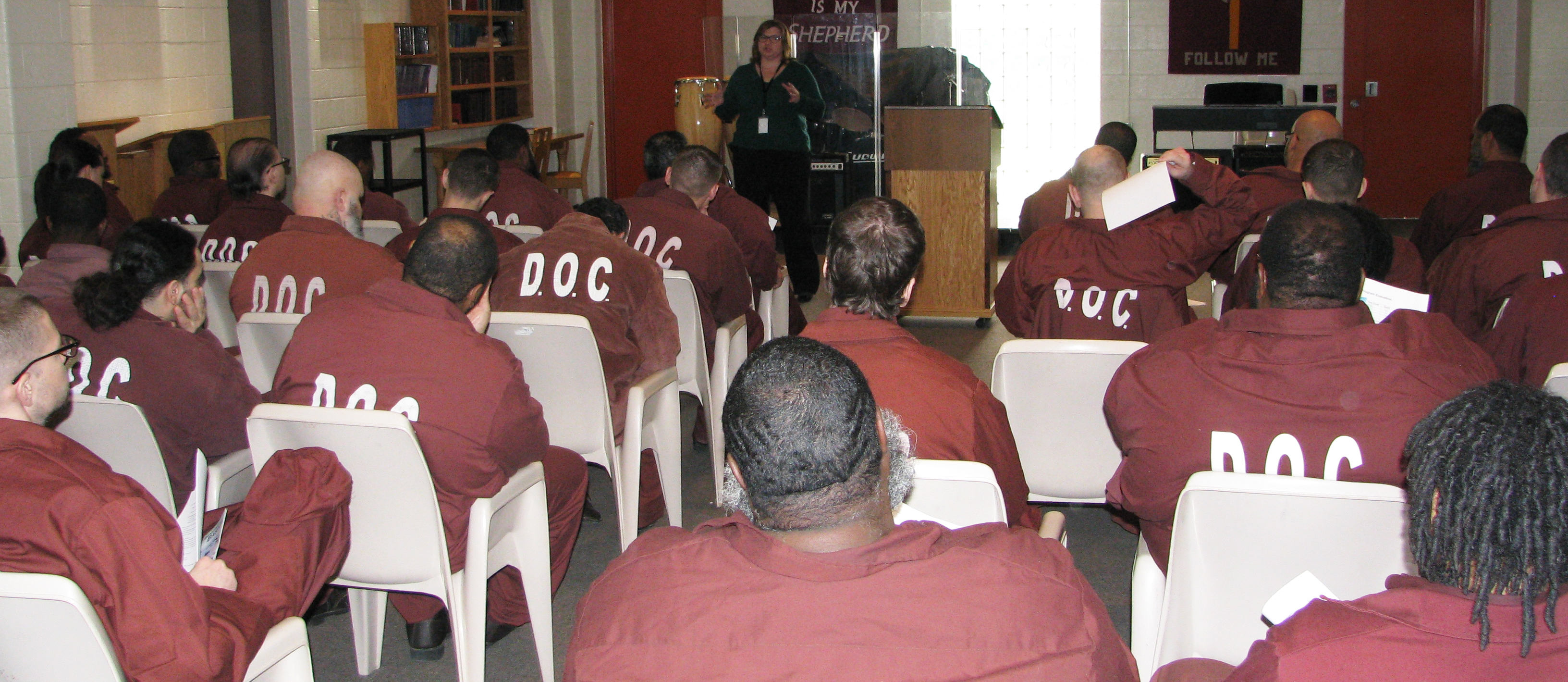In my 12+ years with the Department of Banking and Securities, I’ve done a LOT of outreach and financial education. I’m passionate about it and love doing it. Seeing lightbulbs go off in peoples’ brains is highly rewarding. But lately, we’re on a path I never imagined being on. DOBS has partnered with the Department of Corrections (Corrections) for the last 18 months to deliver financial education to incarcerated individuals. And before you say, “Why are we helping THEM?”…did you know that 90 percent of current inmates will be released back into our communities?
There is a movement nationwide, but especially in Pennsylvania, to help people transitioning out of prison have the tools and resources to find housing, work and become financially stable. This will allow them to be productive, taxpaying citizens and, in some cases, to pay restitution to victims and their families.

When DoBS and Corrections wanted to partner, I obtained special clearances and have since been in every one of the 25 State Correctional Institutions in the Commonwealth at least once and I LOVE it. The main topics we cover are credit and banking basics. We talk about the importance of credit in today’s society. Many of the incarcerated individuals have previously dealt in “cash-only” businesses and have no credit history. We discuss how to obtain credit and build it up by using it wisely, possibly with a secured credit card. I interviewed a gentleman who’d been incarcerated for 17 years. He came out to no credit and began working with a credit union. He now calls me to update me on his credit score frequently.
We discuss the importance of bank accounts and how they can play a role in successful reentry. Corrections research indicates that 73 percent of successful reentrants (out three years or more) had bank accounts while only 39 percent of unsuccessful people (those who violated parole and came back) did. Helping individuals overcome any barriers they may face in opening an account is very satisfying.
As I’ve traveled the Commonwealth, I’ve heard NUMEROUS inmates who want to start businesses when they get out. Finances need to be stable in order to run a successful business. Access to banking and credit is crucial to starting or building a business.
In 2017, I presented over 120 times to almost 5,000 inmates. The results have been amazing. The inmates have been hungry for this information. We encourage this population to check their credit reports to not only see if they’re facing debts upon release but to find out if their identity was stolen while incarcerated. This happens way too often and can have surprisingly damaging results. I recently spoke with a juvenile lifer who came out of 33 years in prison for a crime he committed when he was 16. He came to a community corrections facility briefly but then returned home to family. That was when he discovered that his family had betrayed him and stolen his identity to take out loans in his name. He was so devastated he chose to return to community corrections instead of staying with his family.
We see varying reports on recidivism rates and we know we should try new things to help people NOT return to prison where they cost taxpayer dollars ($40,000 per year/per inmate). We are looking to measure what impact financial education has on job success, higher numbers of bank accounts, financial stability, recidivism, less public assistance, and more.
The biggest thing I’ve learned is that these are PEOPLE who need help to get on the right path. Upon serving their time, they are given another chance to make it in society. I’m grateful for the opportunity that has been given to me to help make a difference in their lives and their families’ lives.
If you would like to learn more about this work contact me: bmacdicken@pa.gov or 717.214.4755.